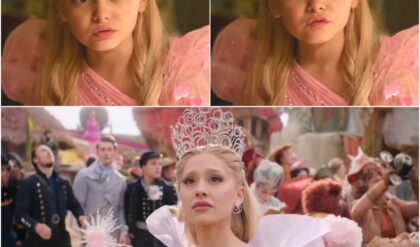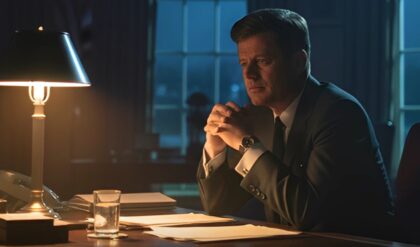Jodie Foster, a cinematic icon with a career spanning over six decades, has carved a niche for herself as one of Hollywood’s most versatile and selective actresses. Renowned for her intense, nuanced performances in films like The Silence of the Lambs (1991) and Panic Room (2002), Foster has become synonymous with psychologically complex roles that delve into the human psyche. In various interviews, she has shed light on why she is drawn to psychological thrillers and horror, genres that allow her to explore profound emotional and intellectual depths, while expressing a clear disinterest in comedy films, which she finds less fulfilling. This article explores Foster’s reasons for gravitating toward psychological thrillers, her discomfort with comedy, and how these preferences have shaped her illustrious career.
The Allure of Psychological Thrillers
Foster’s affinity for psychological thrillers stems from her fascination with narrative-driven stories and characters who propel intricate plots. In a 2025 interview with The Independent, she explained her selective approach to roles, stating, “It has to really speak to me. I’m interested in narrative. I’m all about developing a character who propels the story.” Psychological thrillers, with their emphasis on suspense, moral ambiguity, and human conflict, provide the perfect canvas for Foster to craft such characters. Her role as Clarice Starling in The Silence of the Lambs, for which she won her second Academy Award, exemplifies this. As an FBI trainee navigating a cat-and-mouse game with the cannibalistic Dr. Hannibal Lecter (Anthony Hopkins), Foster brought vulnerability, intelligence, and grit to a character facing both external and internal demons. The film’s blend of psychological horror and thriller elements, lauded as one of the greatest films ever made, resonated with Foster’s desire to engage with challenging, thought-provoking material.
Her attraction to the genre began early in her career. At age 13, Foster starred in The Little Girl Who Lives Down the Lane (1976), a film that blended thriller, mystery, and horror elements. Playing Rynn Jacobs, a secretive teenager living alone in a small town, Foster showcased an uncanny ability to convey complex emotions and intuition beyond her years. The role earned her a Saturn Award and established her as a prodigy capable of handling dark, psychologically rich characters. Reflecting on her career, Foster has noted that these roles allow her to explore “misfit characters set against intimidating challenges,” a recurring theme in her work, from Taxi Driver (1976) to Flightplan (2005).
Psychological thrillers also align with Foster’s intellectual approach to acting. In a 2011 Hollywood Reporter interview, she described her interest in the “psychological dimension” of characters, citing her directorial project The Beaver (2011) as an example. While not a traditional thriller, the film’s exploration of depression and identity through a man communicating via a puppet resonated with her love for stories that probe the mind’s complexities. Similarly, her recent role as Chief Liz Danvers in True Detective: Night Country (2024) saw her tackle a gritty, atmospheric crime drama with psychological undertones, earning her a Primetime Emmy Award. Foster’s performances in these projects highlight her ability to humanize flawed, driven characters, a hallmark of the thriller genre.
The post-9/11 era, with its heightened societal anxieties, further amplified Foster’s connection to thrillers. Films like Panic Room and Flightplan tapped into collective fears of vulnerability and loss of control, themes that Foster has said resonate with her. In Panic Room, she played a mother fighting to protect her daughter in a fortified room, while in Flightplan, she portrayed a grieving engineer searching for her missing child on a plane. Both roles required Foster to balance raw emotion with strategic thinking, qualities she finds compelling. As she told Far Out Magazine in 2021, she is drawn to characters who are “not me in any way,” allowing her to stretch her craft and engage audiences on a visceral level.
Why Comedy Doesn’t Appeal to Foster
While Foster has demonstrated a flair for comedy in early roles, such as the musical gangster spoof Bugsy Malone (1976) and Disney’s Freaky Friday (1976), she has consistently expressed discomfort with the genre as an adult. In a 2011 Hollywood Reporter interview, discussing her directorial work on The Beaver, Foster explicitly stated, “I wouldn’t have been interested in doing the movie as a comedy in any way. A man with a puppet? Who cares? The thing that makes it interesting to me was the psychological dimension.” This sentiment underscores her belief that comedy often lacks the depth and narrative weight she seeks in her projects.
Foster’s aversion to comedy is rooted in her preference for roles that challenge her emotionally and intellectually. Comedy, particularly broad or slapstick humor, can feel limiting to her, as it often prioritizes punchlines over character development. In a 2023 Interview Magazine discussion with Greta Lee, Foster revealed her admiration for Team America: World Police (2004), a satirical puppet comedy, but her appreciation was tied to its subversive critique of blockbuster tropes rather than its humor. She described it as a spoof of “hack blockbuster director Michael Bay,” suggesting that even in comedy, she values subversive, narrative-driven elements over pure entertainment.
Her early comedic roles, while successful, were often vehicles for her precocious charm rather than deep character exploration. In Freaky Friday, Foster played Annabel, a mischievous teen who swaps bodies with her mother, earning a Golden Globe nomination. She later reflected fondly on the role, telling Far Out Magazine, “I loved debunking the myth of the femme fatale… She’s pretending to be a lady, and the truth is she’s vulgar and a klutz.” However, as her career progressed, Foster gravitated toward dramatic roles that allowed her to explore darker, more complex themes. Her brief foray into comedy as an adult, such as the satirical Carnage (2011), was met with mixed results. Critics noted that her naturalistic style clashed with the film’s theatrical banter, reinforcing her discomfort with the genre.
Foster’s selective nature also plays a role. Known for turning down roles in mainstream blockbusters, including superhero films, she has criticized studios for prioritizing “bad content” over meaningful storytelling, comparing them to “fracking” in a 2018 Radio Times interview. Comedy, often driven by commercial appeal, doesn’t align with her focus on authenticity and narrative depth. As she told The Independent in 2025, she seeks projects that “tick all the boxes” for character and story, a criterion rarely met by comedies.
Shaping a Storied Career
Foster’s preference for psychological thrillers and aversion to comedy have defined her as an actress who prioritizes substance over spectacle. Her two Academy Awards—for The Accused (1988) and The Silence of the Lambs—cemented her reputation as a dramatic powerhouse, while her nominations for Taxi Driver and Nyad (2023) highlight her versatility across genres. Her directorial efforts, including Little Man Tate (1991) and Money Monster (2016), further reflect her interest in psychological complexity, focusing on characters grappling with internal and external conflicts.
Her selectivity has not come without challenges. After a string of less successful films in the 1980s, Foster considered leaving acting for graduate studies but gave it “one last try” with The Accused, a decision that revitalized her career. Her time at Yale University, where she graduated magna cum laude in 1985, sharpened her intellectual approach to storytelling, influencing her choice of roles. As she told The Guardian in 2024, she values projects that allow her to “come up with something that’s theirs,” a philosophy evident in her nuanced performances.
Posts on X reflect fans’ admiration for Foster’s commitment to challenging roles, with one user calling her “the queen of psychological thrillers” for her work in The Silence of the Lambs and Panic Room. Another praised her “fearless” approach to complex characters, citing her recent Emmy win for True Detective. These sentiments underscore her enduring impact on the genre.
Why Foster’s Choices Matter
Jodie Foster’s love for psychological thrillers and reluctance to embrace comedy reveal a career built on authenticity and artistic integrity. Her ability to breathe life into characters like Clarice Starling, Meg Altman, and Liz Danvers has made her a beacon for actors seeking meaningful roles. By prioritizing narratives that probe the human condition, she has elevated the thriller genre, blending suspense with emotional resonance. Her discomfort with comedy, while limiting her range in one sense, has allowed her to hone a distinctive screen presence that resonates across generations.
For fans and cinephiles, Foster’s filmography offers a masterclass in acting and storytelling. Whether you’re captivated by the chilling tension of The Silence of the Lambs or the claustrophobic suspense of Panic Room, her work invites viewers to confront fear, resilience, and the complexities of the mind. As Foster continues to take on bold projects, like her recent French-language thriller Vie Privée (2025), her legacy as a trailblazer in psychological thrillers remains unshakable. So, the next time you’re in the mood for a gripping, thought-provoking film, dive into Foster’s catalog—you’ll find a treasure trove of performances that linger long after the credits roll.





